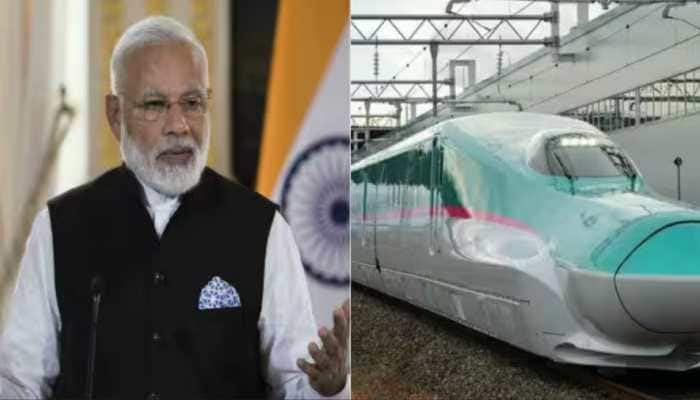Caste-based Census: To Cast(e) or not?
An increasing number of inter-caste marriages are taking place today.
Trending Photos
)
 Shobhika Puri
“We are an equal opportunity employer. We do not discriminate on grounds of age, gender, colour, race, ethnicity, language, caste, creed, economic or social status or disability.”
The above statement can be found easily on the website and HR policy of most of the reputed companies in India.
An increasing number of inter-caste or even inter-religion marriages are taking place today, at least in the urban society. Diwali, Christmas, Id etc are celebrated across the country with equal fervour. All this sounds very good and may even give the impression that India has actually come of age. But, one look around us and the entire picture shall change.
Superficial or man-made distinctions are a reality in India. We still judge people by their surnames, place of birth, skin colour, economic status and the like. Some may state it explicitly, while others may not. Whether we hold these things ‘for’ or ‘against’ someone or not; one thing is for sure, we all are guilty of having thought of such things at some point of time, even if subconsciously.
The reason why this issue has cropped up today is because of the ongoing debate in the Parliament about the Census. The Opposition is demanding that caste should also be included as a parameter in the recently started nationwide Census. This may sound appalling to people who believe in equality. It is logical to say that including caste as a parameter would mean legitimising such distinctions. But, this is the truth. This is the ground reality. In fact, this data assumes importance if we actually want to correct such anomalies in our society. The first step of solving any problem lies in identifying it. Till such facts are put down in numbers, their severity cannot be gauged. Let us not be like a pigeon that closes its eyes on seeing a cat and gives itself a false sense of security.
The purpose of the Census is to report the facts. Since an exercise of such a scale is not undertaken very often, it shall help the government to collect such data till the ground reality changes.
The government can choose not to make such a sensitive data public, lest it is misused for religious fights or political mileage. Instead, it can be used for more constructive activities like finding out the geographic concentration of various castes, debating over the reservation policies, studying the patterns of education, employment, marriages, migration etc.
Census is merely a data reporting facts. It is upto us how we convert it into information and use it for our knowledge development. After all, knowledge is power and it alone can make us wiser in the long term.
(Shobhika Puri is a freelance writer and an LSR(DU) and IIM Lucknow, Noida Campus alumna)
Shobhika Puri
“We are an equal opportunity employer. We do not discriminate on grounds of age, gender, colour, race, ethnicity, language, caste, creed, economic or social status or disability.”
The above statement can be found easily on the website and HR policy of most of the reputed companies in India.
An increasing number of inter-caste or even inter-religion marriages are taking place today, at least in the urban society. Diwali, Christmas, Id etc are celebrated across the country with equal fervour. All this sounds very good and may even give the impression that India has actually come of age. But, one look around us and the entire picture shall change.
Superficial or man-made distinctions are a reality in India. We still judge people by their surnames, place of birth, skin colour, economic status and the like. Some may state it explicitly, while others may not. Whether we hold these things ‘for’ or ‘against’ someone or not; one thing is for sure, we all are guilty of having thought of such things at some point of time, even if subconsciously.
The reason why this issue has cropped up today is because of the ongoing debate in the Parliament about the Census. The Opposition is demanding that caste should also be included as a parameter in the recently started nationwide Census. This may sound appalling to people who believe in equality. It is logical to say that including caste as a parameter would mean legitimising such distinctions. But, this is the truth. This is the ground reality. In fact, this data assumes importance if we actually want to correct such anomalies in our society. The first step of solving any problem lies in identifying it. Till such facts are put down in numbers, their severity cannot be gauged. Let us not be like a pigeon that closes its eyes on seeing a cat and gives itself a false sense of security.
The purpose of the Census is to report the facts. Since an exercise of such a scale is not undertaken very often, it shall help the government to collect such data till the ground reality changes.
The government can choose not to make such a sensitive data public, lest it is misused for religious fights or political mileage. Instead, it can be used for more constructive activities like finding out the geographic concentration of various castes, debating over the reservation policies, studying the patterns of education, employment, marriages, migration etc.
Census is merely a data reporting facts. It is upto us how we convert it into information and use it for our knowledge development. After all, knowledge is power and it alone can make us wiser in the long term.
(Shobhika Puri is a freelance writer and an LSR(DU) and IIM Lucknow, Noida Campus alumna)
Stay informed on all the latest news, real-time breaking news updates, and follow all the important headlines in india news and world News on Zee News.
Advertisement
Live Tv
Advertisement







)
)
)
)
)
)
)
)
)
)
